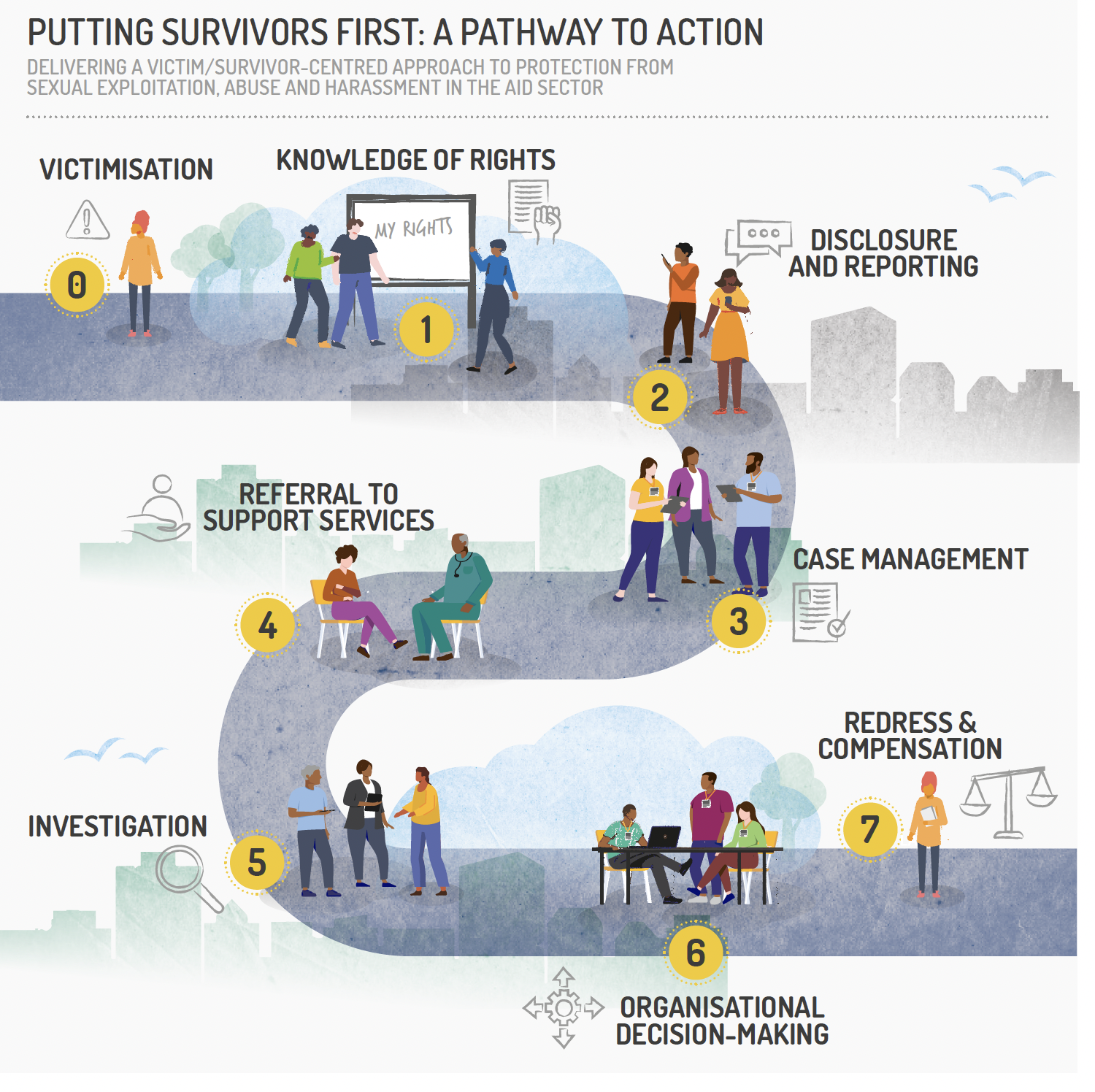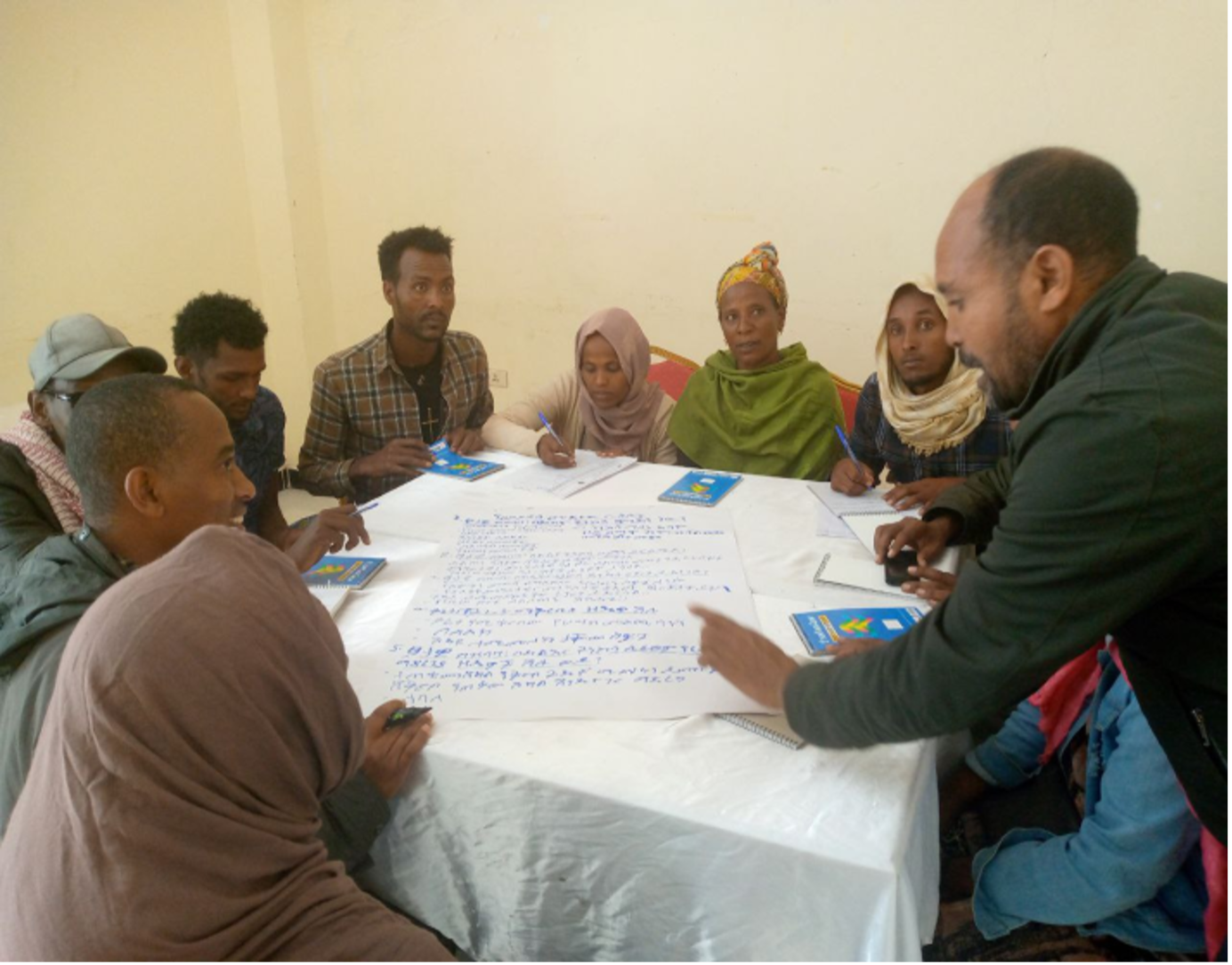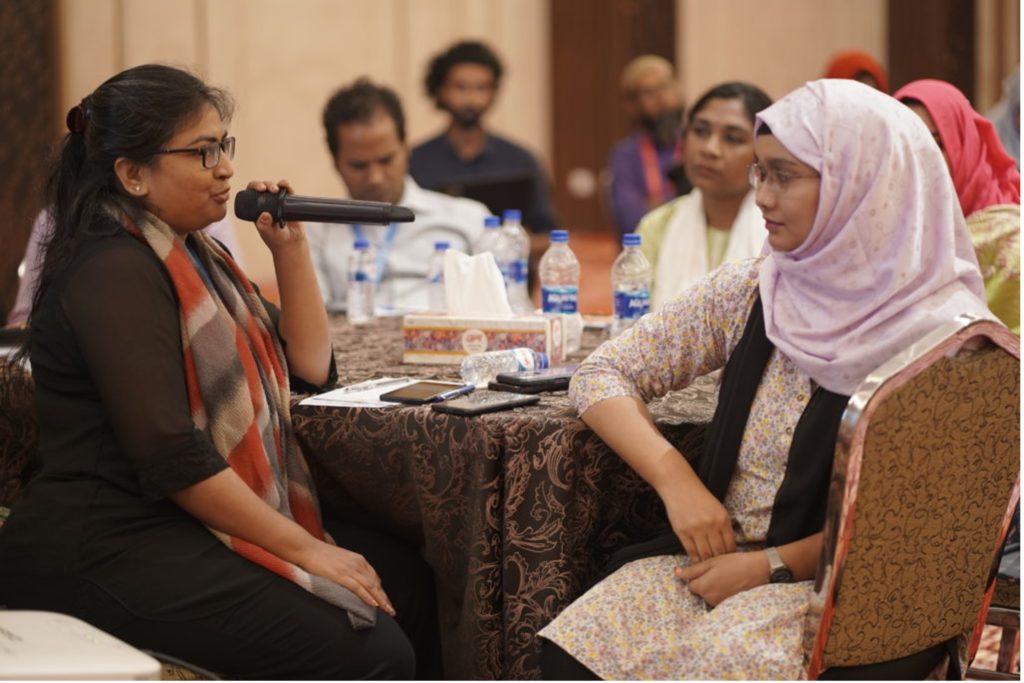Tackling Sexual Exploitation, Abuse and Harassment in Aid Work
The CHS Alliance is working to transform how the aid sector responds to sexual exploitation, abuse and harassment (SEAH). We believe victims and survivors must be at the heart of all our efforts. This means ensuring their voices guide both how we address SEAH incidents and how we hold perpetrators accountable. This approach is essential to meeting Core Humanitarian Standard (CHS) commitments.
Understanding the Victim-Centred Approach: Protecting Rights and Dignity
A victim/survivor-centred approach means putting the rights, dignity, and wishes of those affected by SEAH first. This is a critical matter of accountability in humanitarian work. Aid organisations must prioritise victims’ needs and preferences above their own institutional concerns.
This approach requires actively listening to victims/survivors, providing safe spaces and support, treating victims with respect, and ensuring they can make informed choices. Throughout the process, organisations must offer comprehensive support through trauma-informed practices.
To be effective, support services must be developed alongside local communities and respect cultural contexts. This ensures interventions genuinely meet victims’/survivor’s needs in a respectful and relevant way.
Practical Resources to Support a Victim/Survivor-Centred Approach
The humanitarian sector must continuously learn and adopt best practices in PSEAH to improve accountability and safety. Working with local leaders, CHS Alliance has developed resources to help humanitarian organisations implement victim-centred approaches effectively.
Access The CHS Alliance’s Victim/Survivor-Centred Approach toolkit:
- Foundational paper
- Implementation Companion
- Monitoring and Evaluation Toolkit
- Advocacy Toolkit (key messages, flyer, companion brochure)
These resources provide detailed guidance for organisations to support and safeguard victims/survivors following SEAH incidents, with methods tailored to local cultural contexts.

Why a Victim/Survivor-Centred Approach Matters in Aid Work
A victim/survivor-centred approach is essential because crisis-affected individuals, especially those harmed by aid workers, often struggle to report incidents safely. CHS verification data and the Harmonised Reporting Scheme shows that victims frequently distrust complaint systems that prioritise organisational compliance over their well-being. Many fear losing assistance if they report issues or doubt they’ll receive adequate protection.
This widespread mistrust enables perpetrators to act with impunity. A victim/survivor-centred approach breaks this pattern by establishing safe reporting channels and comprehensive support systems. When aid organisations prioritise victims’ needs and create accessible reporting mechanisms, they can address SEAH more effectively while preserving victims’ dignity.
“Such [an SEAH] incident breaks a victim’s trust not only in the harmful organisation, but her trust in all aid organisations breaks as a result.” Community member, West Bank, Plaestine during a CHS Alliance pilot of locally-led victim/survivor-centred approach in 2024
This approach improves outcomes for victims, aids prevention, and holds perpetrators accountable, thereby rebuilding trust in aid organisations. Failing to address individual SEAH cases exacerbates accountability issues, as repeated scandals demonstrate.
Evidence That a Victim/Survivor-Centred Approach Works
Pilot programmes show that when organisations take a victim/survivor-centred approach, victims and survivors are more likely to come forward and report incidents. By offering comprehensive support – including legal help, material assistance and psychological care – organisations create an environment where victims feel protected and respected.
Watch this short video to see how a victim/survivor-centred approach has been implemented in Cox’s Bazar through community focal points and local female PSEAH focal points from the Rohingya community. Video produced by CHS Alliance’s project partners, Mukti:
Creating trusted support networks with mental health services, legal guidance and community intermediaries is crucial for empowering survivors and preventing future abuse. This comprehensive approach helps humanitarian organisations build safer communities.
“…partnering with CHS Alliance on [this] project has made a profound change to how we can work. This project allowed us to better protect and support women and girls living in Internally Displaced People (IDP) centres in Amhara from SEAH. For the first time, we had the resources to shape this project from start to finish entirely around what potentially vulnerable women and local women’s groups wanted.
It has been an incredible experience to co-produce new solutions to protect women and girls from harm caused by aid workers in this region, showing them that we listen, value and respect their ideas and experiences.
Not only that, but we act on them. The project has contributed a lot to building awareness among IDPs and the host community on PSEAH and potential reporting mechanisms.” Martha Woyessa, Executive Director of CHS Alliance member Women Empowerment-Action Ethiopia.

CHS Alliance’s Vision for Systemic Change: Advancing Accountability
CHS Alliance aims to transform how the aid sector understands and implements victim/survivor-centred approaches to SEAH. We’re working to move beyond mere compliance towards genuine support for victims and survivors.
Effective SEAH response requires coordinated action across the sector. We collaborate with policy leaders, local implementers and global organisations to embed victim/survivor-centred practices into their work.
Advocating for Policy and Practice Shifts
CHS Alliance champions policies that prioritise prevention, support and accountability. Our goal is to break the institutional silence around SEAH by promoting collective action and simpler, trauma-informed practices that support victims throughout their journey from harm to healing.

